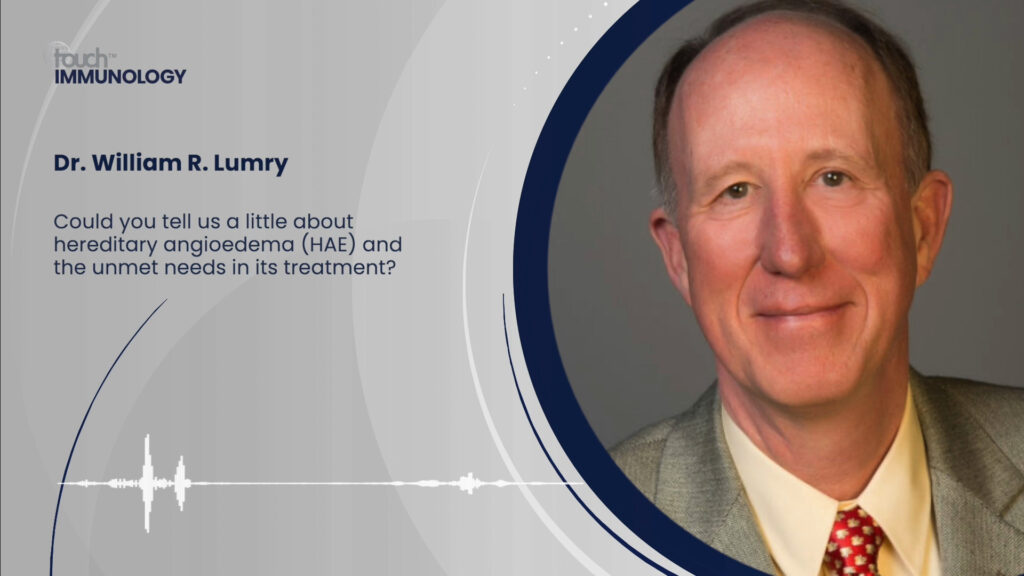
The treatment of children aged 1–4 years with peanut oral immunotherapy (OIT) could have a lasting impact on their immune system, according to findings from the IMPACT-PLuS follow-up trial (ClinicalTrials.gov identifier: NCT03345160), presented at AAAAI/WAO Joint Congress 2025 (28 February-3 March 2025, San Diego, CA, USA).1,2 The long-term follow-up trial found that children who underwent peanut OIT in the earlier IMPACT trial (ClinicalTrials.gov identifier: NCT01867671) maintained significant changes in their allergen-specific IgE and IgG4 profiles, which could have positive implications for long-term allergy management.3
The initial IMPACT trial was a randomized, double-blind, placebo-controlled study that investigated the efficacy of peanut OIT in 146 children aged between 1–4 years of age who had peanut allergies.3,4 Peanut OIT was administered to participants at an early age (1–4 years), with the goal of inducing long-term changes to their developing immune system. Participants were randomised to receive peanut OIT or placebo for 134 weeks, which was followed by 26 weeks of avoidance. The trial took place over 160 weeks; the primary outcome assessed was desensitisation at the end of treatment (week 134), and the key secondary outcome was remission after avoidance (week 160). The results showed that compared to placebo, peanut OIT decreased peanut-specific and Arachis hypogaea 2-specific (Ara h2-specific) immunoglobulin E (IgE) and increased peanut-specific and Ara h2-specific immunoglobulin G4 (IgG4), concluding that peanut OIT could lead to desensitisation in children, with evidence in some cases of remission.
The follow up study, IMPACT-PLuS, was designed to build on these results to evaluate the lasting impact of peanut OIT on participants.1 The study assessed the levels of specific antibodies (total IgE, peanut-specific IgE and IgG4, and Ara h2-specific IgE and IgG4) in the blood samples of 51 participants of the IMPACT trial, 5–7 years after the original study. Concentrations were compared between the following groups: (1) peanut OIT versus placebo (PnOIT/Plb); (2) desensitised/remission (D+R+), desensitized/non-remission (D+R-) and non-desensitised/non-remission (D-R-); and (3) current peanut consumers versus non-consumers.
The study found that after 5+ years, children who received peanut OIT maintained significantly lower levels of peanut-specific IgE and Ara h2-specific IgE (PnOIT/Plb: peanut-specific IgE 3.6 versus 18.7 kUA/L, p=0.002; Ara h2-specific IgE 1.0 versus 7.0 kUA/L, p<0.001) and higher ratios of peanut IgG4:IgE (p=0.004) and Ara h2 IgG4:IgE (p=0.001) compared with those in the placebo group.1 Those who were classified as in remission (i.e. no longer experienced allergic reactions to peanuts) were reported to have the lowest levels of peanut-specific IgE and and Ara h2-specific IgE (D+R+/D+R-/D-R-: peanut-specific IgE 2.0 versus 3.5 versus 17.6, p=0.02 kUA/L, Ara h2-specific IgE 0.9 versus 1.0 versus 6.2 kUA/L, p=0.002) and the highest peanut IgG4:IgE (p=0.004) and Ara h2 IgG4:IgE (p=0.007) ratios compared with desensitized and non-desensitized participants. The investigators concluded that these results suggest that children who receive peanut OIT can maintain differences in their allergen-specific IgE and IgG4 profiles in the longer term when compared with the placebo group. Interestingly, the study also found that children who continued to consume peanuts had higher peanut-specific IgG4 (p<0.001) and Ara h2-specific IgG4 (p<0.0001), and lower peanut-specific IgE (p=<0.001) and Ara h2-specific IgE (p=<0.001) compared with those who did not consume peanuts. Speaking on the findings, study investigator Dr Yamini Virkud from the University of North Carolina, Chapel Hill, NC, USA, said:
“These findings suggest that the early adoption of peanut oral immunotherapy has lasting immunologic impact correlating with clinical outcomes”.5
Read the full abstract here:
https://www.jacionline.org/article/S0091-6749(24)02310-8/fulltext
References
- Virkud Y, Dantzer J, Cox A, et al. Long-term Assessment of Antibody Profiles after the IMPACT Peanut Oral Immunotherapy Trial: Findings from the IMPACT-PLuS Follow-up. J Allergy Clin Immunol. 2025;155(Suppl.):AB444. DOI: 10.1016/j.jaci.2024.12.1023.
- ClinicalTrials.gov. Peanut Oral Immunotherapy in Children: IMPACT Follow Up Study. ClinicalTrials.gov identifier: NCT03345160. Available at: www.clinicaltrials.gov/study/NCT03345160 (accessed 26 March 2025).
- ClinicalTrials.gov. Peanut Oral Immunotherapy in Children (IMPACT). ClinicalTrials.gov identifier: NCT01867671. Available at: www.clinicaltrials.gov/study/NCT01867671 (accessed 26 March 2025).
- Jones SM, Kim EH, Nadeau KC, et al. Efficacy and safety of oral immunotherapy in children aged 1-3 years with peanut allergy (the Immune Tolerance Network IMPACT trial): A randomised placebo-controlled study. Lancet. 2022;399:359–371. DOI: 10.1016/S0140-6736(21)02390-4.
- Derman C. (2025) Peanut Oral Immunotherapy Yields Distinct IgE, IgG4 Profiles in Kids After 5 Years. HCP Live. Available at: www.hcplive.com/view/peanut-oral-immunotherapy-yields-distinct-ige-igg4-profiles–kids-after-5-years (accessed 26 March 2025).
Further content in allergic conditions.
Disclosures: This article was created by the touchIMMUNOLOGY team utilizing AI as an editorial tool (ChatGPT (GPT-4o) [Large language model]. https://chat.openai.com/chat.) The content was developed and edited by human editors. No funding was received in the publication of this article.
Cite: New data from IMPACT-PLuS suggests early peanut oral immunotherapy has a lasting immunologic impact in children. touchIMMUNOLOGY. March 26th, 2025.
SIGN UP to TouchIMMUNOLOGY!
Join our global community today for access to thousands of peer-reviewed articles, expert insights, and learn-on-the-go education across 150+ specialties, plus concise email updates and newsletters so you never miss out.









